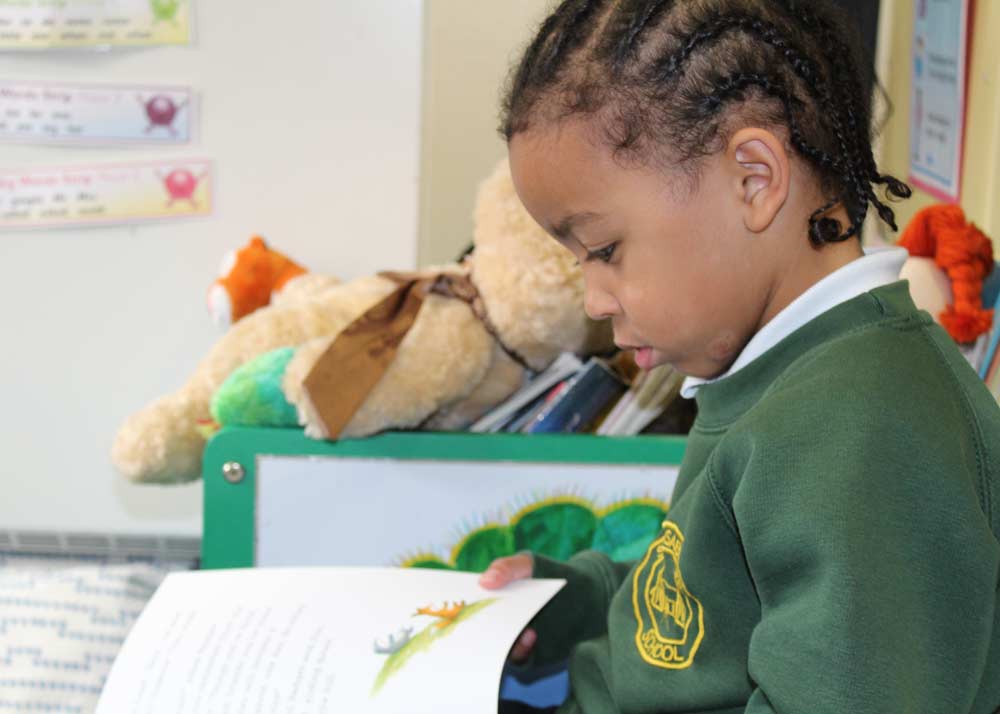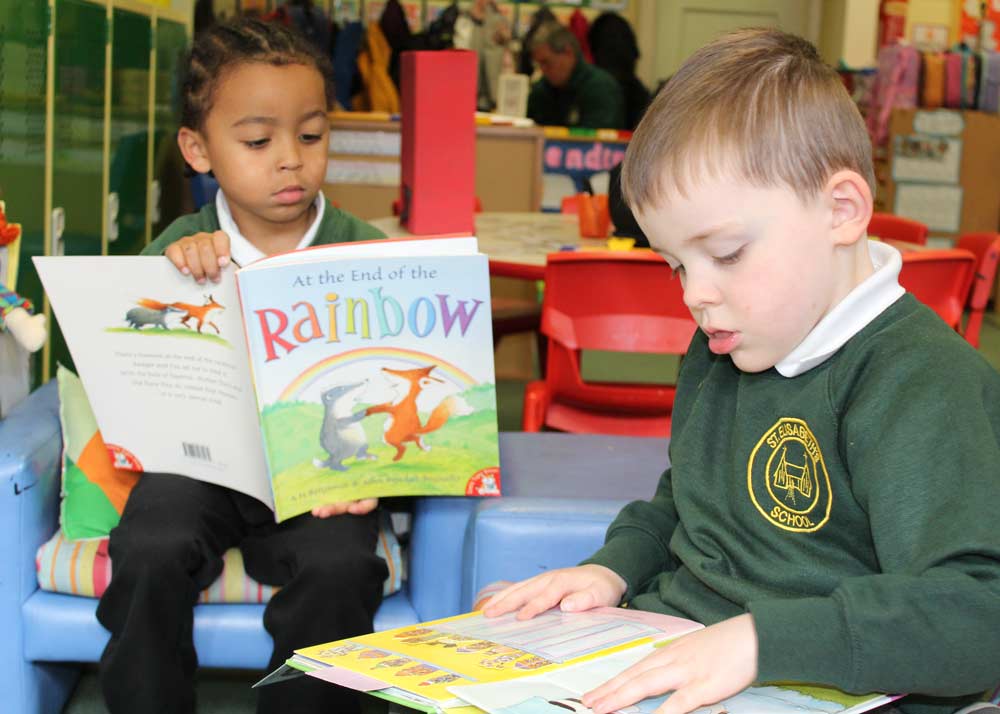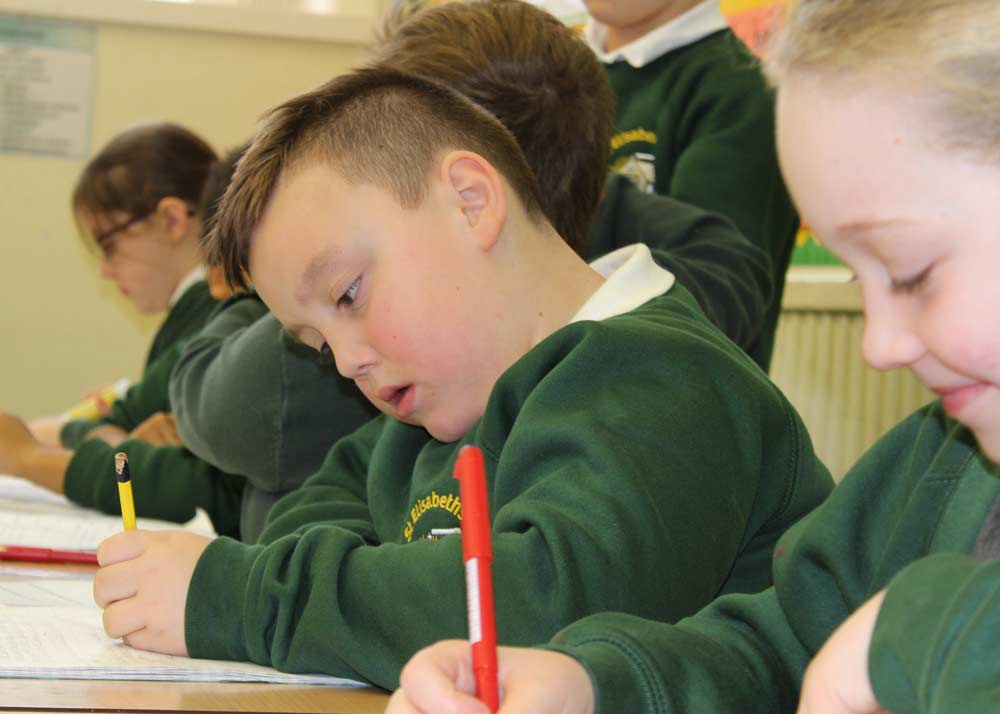Religious Education
Religious Education (RE) is an integral part of the children’s education at St Elisabeth’s CE. In our teaching of RE, we are always striving for excellence, reflecting the school’s distinctive Christian character. St Elisabeth's CE Primary School is a Voluntary Controlled Church School and as such, the management of Religious Education is a distinctive role of the Governors and Head Teacher. The teaching of Religious Education at St Elisabeth's maintains a balanced approach between Learning about Religion and Learning from Religion. Our vision is to promote tolerance, understanding and respect for all religions. We embed Bible stories from EYFS to KS1, including personal reflections and thoughts and introduce our children to other major religions. Moving into KS2, the curriculum focusses on many areas in Christianity and other major religions, such as values, historical studies and important social lessons. Each week, every class is taught Religious Education for one hour which will include critical reflections as a class and individually. This will facilitate a personal journey of faith, values and morality for each child.



In our daily worship time, Christian values and morals will be explored and the children will be expected to uphold these values in their school life in the classroom and with their peers and the adults they work with.
Throughout the R.E. curriculum, other religions and beliefs are studied, which include Judaism and Hinduism. The children will compare and contrast these beliefs against the core Christian roots St Elisabeth’s CE upholds.
Parental Rights of Withdrawal
The Worship and Religious Education provided by the school is in accordance with the Church of England. This foundation is also reflected in the curriculum and the whole life of the school community. Since the conduct of the school as a whole reflects the Church of England ethos, removal of pupils from Worship and/or Religious Education (as parents are legally entitled to do) cannot insulate them from the religious life of the school.
Collective Worship
At St Elisabeth's Church of England Primary School, the daily act of collective worship is viewed as an integral and important part of school life. Through this and in the general ethos of the school we seek to promote our mission statement, where all pupils belong, believe and become.
It is a time where we come together to share our love of God based on promoting the Christian values which permeate the ethos of the school. As such, the contributions of staff, pupils, church clergy and other visitors are valued highly. We also actively seek to encourage the attitudes of awe, wonder and reflection. We have regular contributions to assembly. In accordance with Manchester Diocesan Guidelines, our school ensures that every child is entitled to an opportunity for daily worship.
Withdrawing Pupils from Collective Worship
The 1996 Education Act gives parents the legal right to withdraw their children from collective worship. This is upheld under the 1998 Act.
As an Anglican school we hold great value in the power of collective worship to formulate, enhance and celebrate the power and wonder of our Christianity Faith. This said, if parents wish to withdraw their child from collective worship we request that the reasons be put in writing and submitted to the Headteacher.

